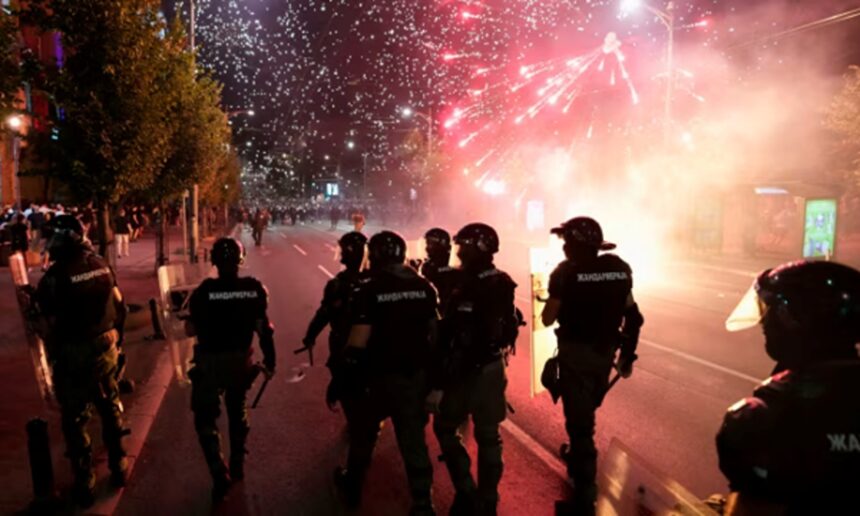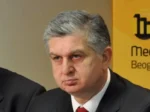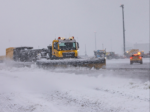Europe must increase pressure on Aleksandar Vučić to prevent a deeper democratic backslide.
Financial Times Editorial Board
After a decline in power, veteran authoritarians always face a crossroads: will they intensify repression, consolidate their circle of loyal capitalists, and squeeze whatever remains of independent media, if any exists, or will they yield to opposition calls for reform? This pattern has played out repeatedly around the world in the decades following the Cold War. Autocrats almost always choose the first path—and grow harsher. Now, with anti-government protesters in the streets of the capital, Belgrade, Serbia’s Aleksandar Vučić faces these choices.
For eight years as Serbia’s president, and before that as prime minister, he has ruled with an increasingly interventionist hand, yet he has governed more like a managed democracy than a full autocracy. Vučić has executed a similarly shrewd balancing act on the global stage. He maintained warm ties with Moscow without angering the EU or the U.S.; he turned a blind eye to Serbian arms sales to Ukraine; and he impressed Beijing with billions of dollars in investment in industry and infrastructure.
Although Serbia is still only a candidate for EU membership, Vučić has close ties with bloc leaders such as French President Emmanuel Macron and European Commission President Ursula von der Leyen—not only by offering European mining companies access to the country’s untapped lithium deposits to boost Europe’s energy independence, but also by building good relations with key aides of Donald Trump during his first U.S. presidential term.
Vučić’s routine for safeguarding against risk might warrant study by other states with multiple alliances. But at home, he is running out of room, as frustration with his opaque and irresponsible rule has turned into protest. The spark was the collapse of a train station tent in November in Novi Sad, which killed 16 people. The station had been renovated by Chinese companies under China’s Belt and Road Initiative. Vučić’s opponents blame the collapse on state corruption, poor governance, and weak oversight, all seen as hallmarks of his regime.
Since November, opposition demonstrators have periodically taken to the streets in large numbers, recently demanding early elections. Last week saw the most violent protests so far, with clashes with police in several cities. Over the years, Vučić—a former extreme nationalist—has exploited pan-Serb sentiment and irredentism among Serb minorities in neighboring Bosnia and Kosovo to secure support. But this card may be losing its power.
Vučić could still lift restrictions on non-state media, open political space for the opposition, and launch truly independent investigations into scandals like the Novi Sad station collapse. Such moves would also aid Serbia’s long-running EU accession effort. But reform is not the autocrat’s path: Vučić is more likely to double down and take harsher measures.
The EU and Britain have indulged him for far too long. Realpolitik has reflected a desire not to see Serbia fall into Russia’s orbit. But this hands-off approach is no longer sustainable. Vučić must be pushed to act responsibly and hold genuinely fair elections; this is essential for any hope of EU membership. The alternative is for Serbia to slide along the path Georgia unfortunately took, becoming a sham democracy over which the EU has no influence and whose excesses it can only condemn in statements.
America seems to have temporarily left the Balkan field. But the UK and the EU have not. They must act and use their economic leverage. If they fail to do so and Serbia continues down an authoritarian path, it will not only be Vučić who is at fault, but also his Western supporters who look away.







